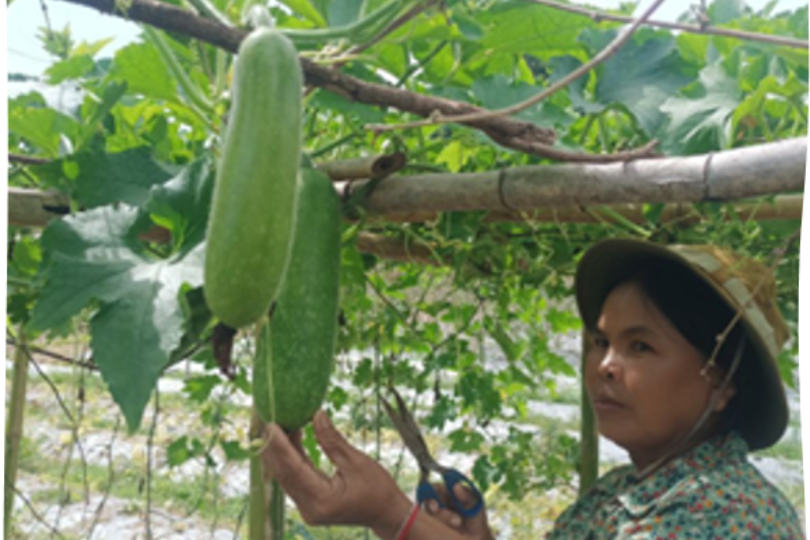In the riverine village of Koh Sralao, Stung Treng province, 52-year-old Mrs. Loeur Sin has emerged as a role model for women in agriculture and climate resilience. Living 35 kilometers from Stung Treng town and accessible only by boat, her community thrives on farming, fishing, and forest resources.
Among them, Mrs. Sin stands out as a leading agricultural promoter formed by My Village Organization (MVi), actively engaging in climate discussions and community development initiatives.
With technical support from MVi, Sin adopted the climate-smart agriculture (CSA) model, transforming her home garden into a diversified source of income and climate adaptation.
In 2024, she cultivated a range of vegetables including peppers, eggplant, cucumbers, and lettuce. Harvesting 10–20 kilograms each session, she supplies about 225 kilograms weekly to local buyers at the Mekong Bird Resort, earning approximately 337,500 riels per week.
Notably, she also collects produce from fellow farmers, strengthening local networks and livelihoods.
Beyond her economic success, Sin is passionate about empowering other women and youth. “They can do the same as I do,” she shared. “It’s about creating income and increasing our voices in community development.” Her learning journey—supported by MVi and Oxfam—deepened her understanding of gender equality and inclusive climate adaptation.
Yet, challenges persist. Women’s voices in decision-making remain limited due to heavy workloads and poor access to climate information. Sin stresses that women must play central roles in disaster risk reduction and climate resilience, engaging with institutions like CCDM, DCDM, and RUA to strengthen village planning.
Today, Mrs. Sin is not only a producer but also a speaker, sharing best practices in workshops and mentoring others. Her leadership reflects the potential of grassroots women to drive inclusive, climate-smart agriculture across Cambodia’s vulnerable landscapes.

